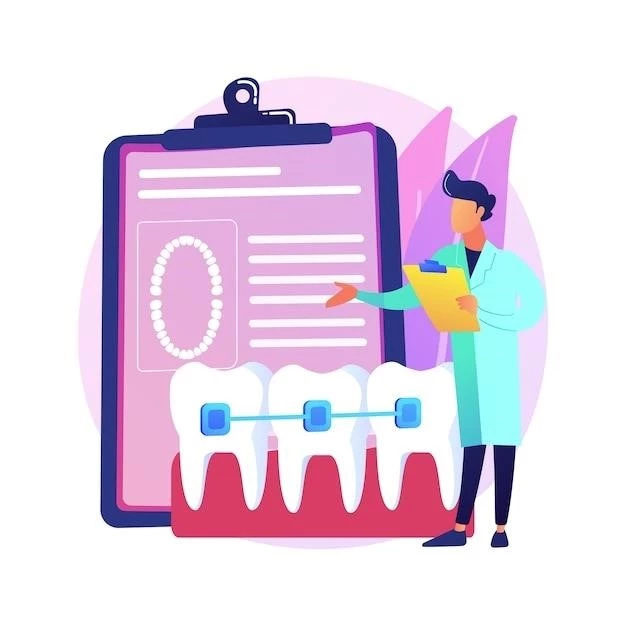Overview of Charcot-Marie-Tooth Disease
Understanding Charcot-Marie-Tooth Disease is crucial‚ covering its causes‚ symptoms‚ diagnosis‚ treatment‚ research developments‚ patient support‚ and living strategies. Each aspect plays a key role in managing this condition effectively.
Introduction to Charcot-Marie-Tooth Disease
Charcot-Marie-Tooth Disease‚ also known as CMT‚ is a genetic neurological disorder that affects the peripheral nerves; It leads to muscle weakness‚ atrophy‚ and sensory loss in the extremities. CMT is categorized into different types based on the genetic mutation involved. The condition typically manifests in adolescence or early adulthood and progresses slowly over time. As a patient or caregiver‚ learning about CMT can help in understanding its impact‚ managing symptoms effectively‚ and accessing appropriate support.
Causes of Charcot-Marie-Tooth Disease
Charcot-Marie-Tooth Disease is primarily caused by genetic mutations that affect the peripheral nerves responsible for movement and sensation. These mutations lead to the degeneration of the protective covering (myelin sheath) around the nerves‚ affecting their ability to transmit signals efficiently. The most common genetic pattern in CMT is autosomal dominant‚ meaning an affected parent has a 50% chance of passing on the mutated gene to their child. In some cases‚ the condition can also result from spontaneous genetic mutations. Understanding the genetic basis of CMT can help in genetic counseling‚ family planning‚ and early interventions.
Symptoms of Charcot-Marie-Tooth Disease
Charcot-Marie-Tooth Disease presents with a range of symptoms that vary in severity and progression. Common signs include muscle weakness‚ especially in the lower legs and feet‚ leading to frequent trips or falls. Patients may experience decreased sensation in the extremities‚ muscle atrophy‚ foot deformities like high arches or hammertoes‚ and difficulty with fine motor skills. Numbness‚ tingling‚ and pain can also occur. Monitoring symptoms closely‚ seeking early medical intervention‚ and implementing appropriate therapies can help in managing the effects of CMT on daily life.
Diagnosis and Testing for Charcot-Marie-Tooth Disease
Diagnosing Charcot-Marie-Tooth Disease involves a combination of clinical evaluations‚ genetic testing‚ nerve conduction studies‚ and electromyography. A detailed medical history‚ physical examination assessing muscle strength and reflexes‚ and family history review are essential steps. Genetic testing can confirm the presence of known CMT genetic mutations. Nerve conduction studies measure the speed of nerve signal conduction‚ while electromyography evaluates muscle response to nerve signals. Early and accurate diagnosis is key to initiating appropriate treatment strategies and accessing necessary support services.

Management and Treatment of Charcot-Marie-Tooth Disease
Managing Charcot-Marie-Tooth Disease focuses on symptom alleviation‚ maximizing function‚ and improving quality of life. Physical and occupational therapy can help maintain or improve mobility‚ strength‚ and coordination. Orthopedic devices like braces or orthotics may assist with foot deformities and walking difficulties. Pain management strategies and medication can target discomfort. Regular monitoring by healthcare providers‚ genetic counseling‚ and psychological support are vital components of comprehensive care. Early intervention and a personalized multidisciplinary approach can enhance outcomes for individuals living with CMT.
Research and Developments in Charcot-Marie-Tooth Disease
Ongoing research in Charcot-Marie-Tooth Disease aims to deepen our understanding of the genetic mechanisms underlying the condition and develop innovative treatment approaches. Studies focus on gene therapy‚ nerve regeneration‚ and drug therapies to slow disease progression and improve symptoms. Collaborations between researchers‚ clinicians‚ and patient advocacy groups drive advancements in CMT research. Staying informed about clinical trials and research updates can empower patients and families to explore potential new treatments. Supporting research efforts through fundraising or participation can contribute to the development of promising therapies for CMT.
Support and Resources for Charcot-Marie-Tooth Disease Patients
Charcot-Marie-Tooth Disease patients can benefit from a range of support services and resources tailored to their needs. Patient advocacy organizations offer educational materials‚ support groups‚ and community events for individuals and families affected by CMT. Connecting with others facing similar challenges can provide emotional support and valuable insights. Additionally‚ accessing specialized healthcare providers‚ physical therapy services‚ and assistive devices can enhance quality of life. Understanding available resources‚ financial assistance programs‚ and disability rights can help navigate the complexities of managing CMT and promote overall well-being.
Living with Charcot-Marie-Tooth Disease⁚ Tips and Strategies
Living with Charcot-Marie-Tooth Disease requires a proactive approach to managing daily challenges and promoting overall wellness. Tips include maintaining a healthy lifestyle through regular exercise suitable for your abilities‚ balanced nutrition‚ and sufficient rest. Assistive devices like orthopedic braces or mobility aids can enhance independence and mobility. Prioritizing mental health by seeking counseling or joining support groups can alleviate stress and anxiety. Engaging in hobbies‚ adjusting work environments if needed‚ and communicating openly with loved ones about your needs are essential to navigating life with CMT successfully. Remember‚ self-care and self-advocacy are key components of thriving with this condition.
Conclusion
Charcot-Marie-Tooth Disease presents unique challenges‚ but with the right knowledge‚ support‚ and strategies‚ individuals can effectively manage the condition and lead fulfilling lives. From understanding the genetic causes to navigating treatment options and daily living tips‚ a comprehensive approach is vital. Accessing resources‚ connecting with support groups‚ and staying informed about research developments are key steps in the journey with CMT. By taking proactive steps‚ fostering resilience‚ and seeking assistance when needed‚ individuals with Charcot-Marie-Tooth Disease can optimize their well-being and thrive in their daily lives.
